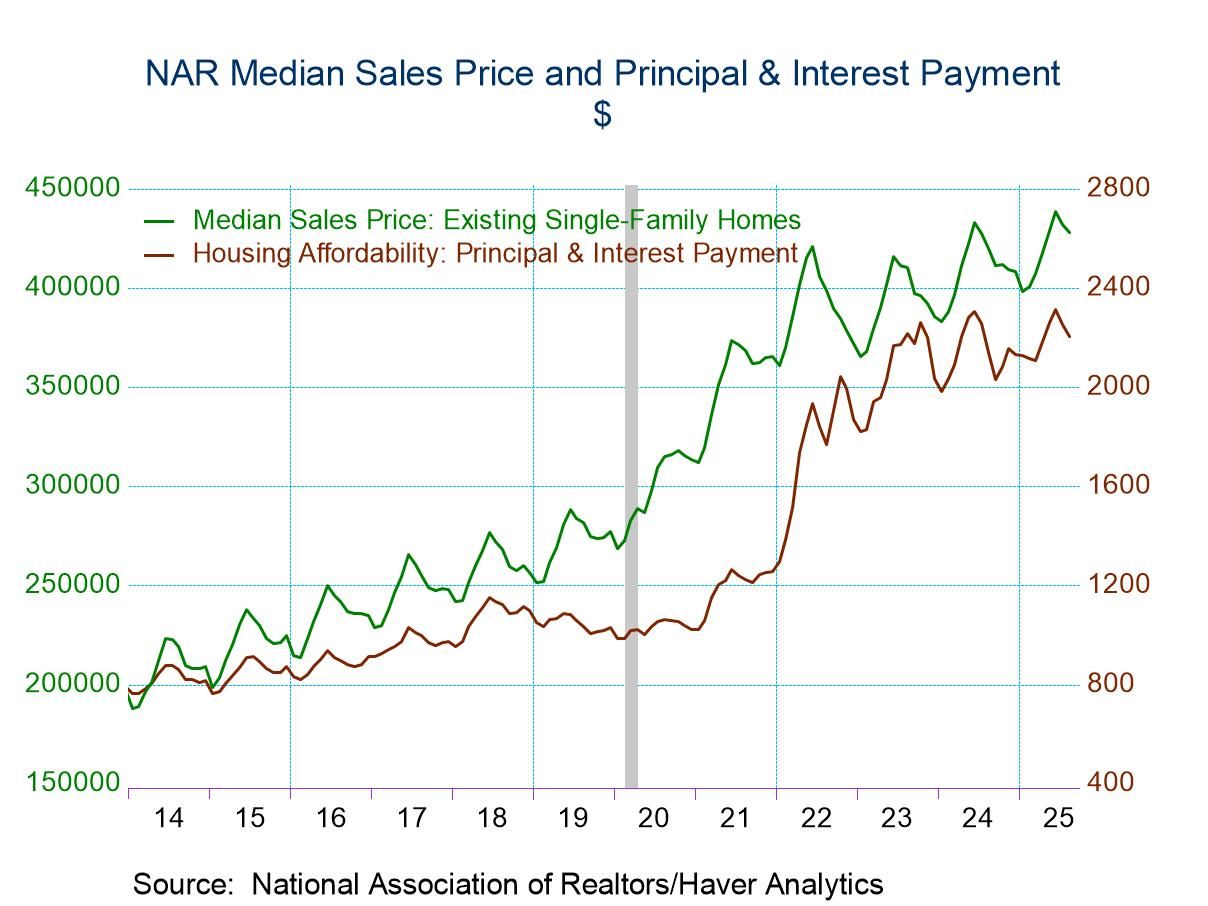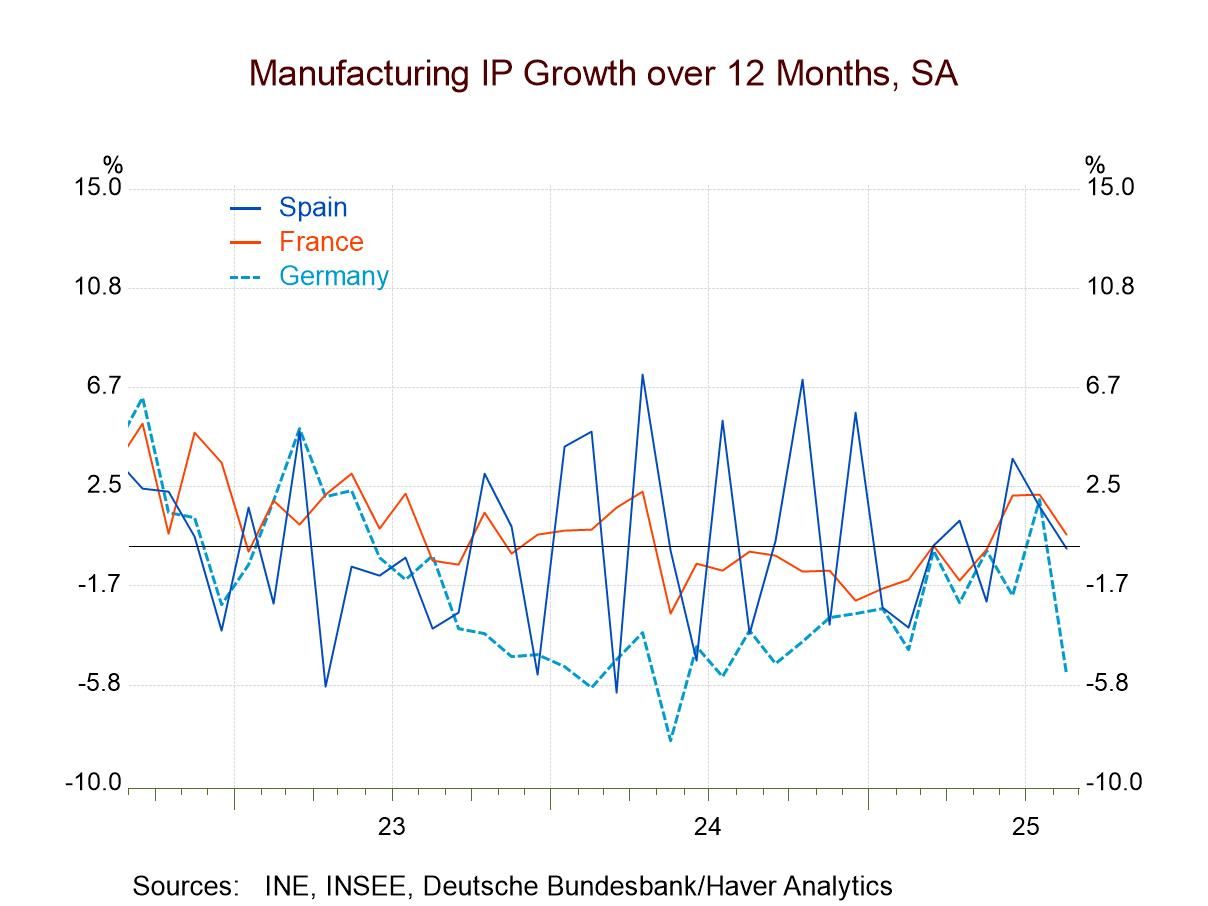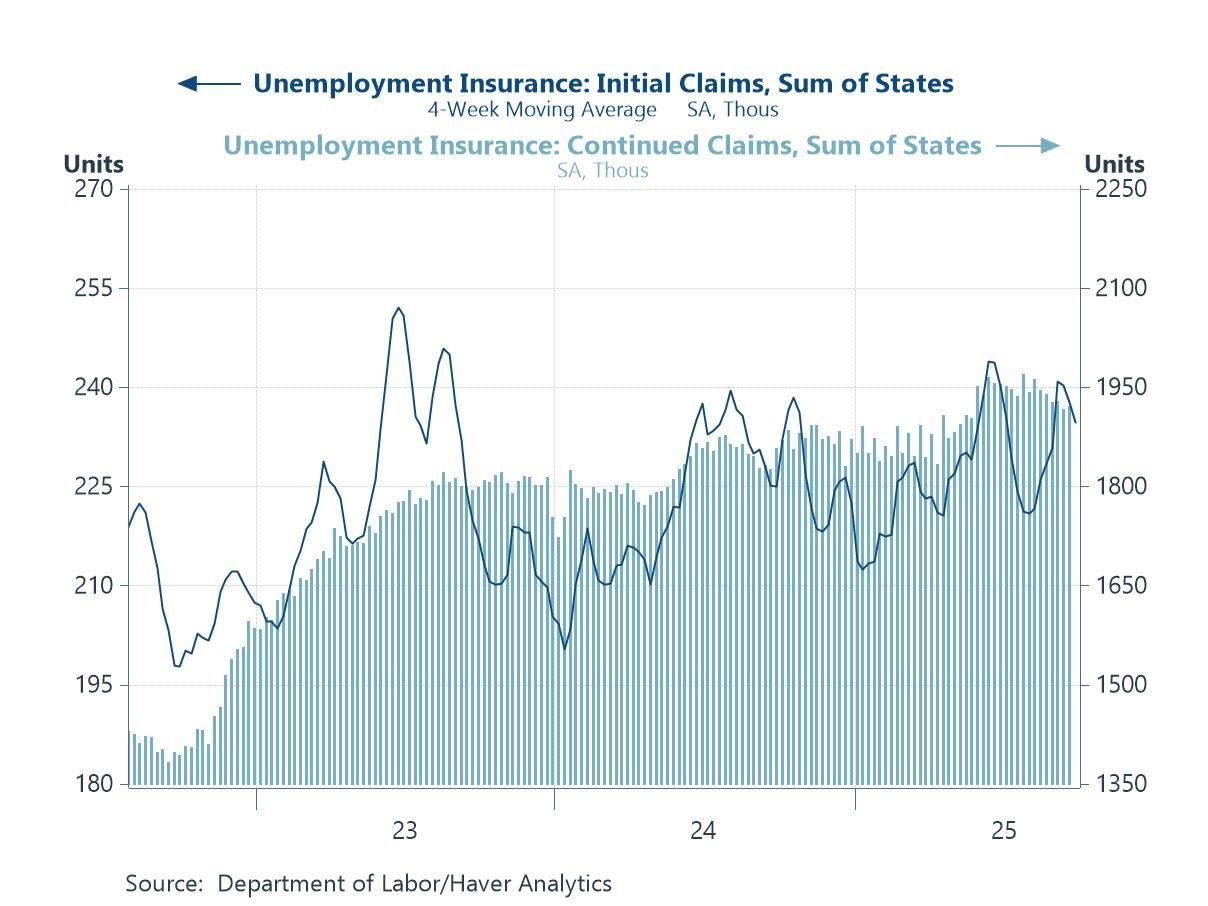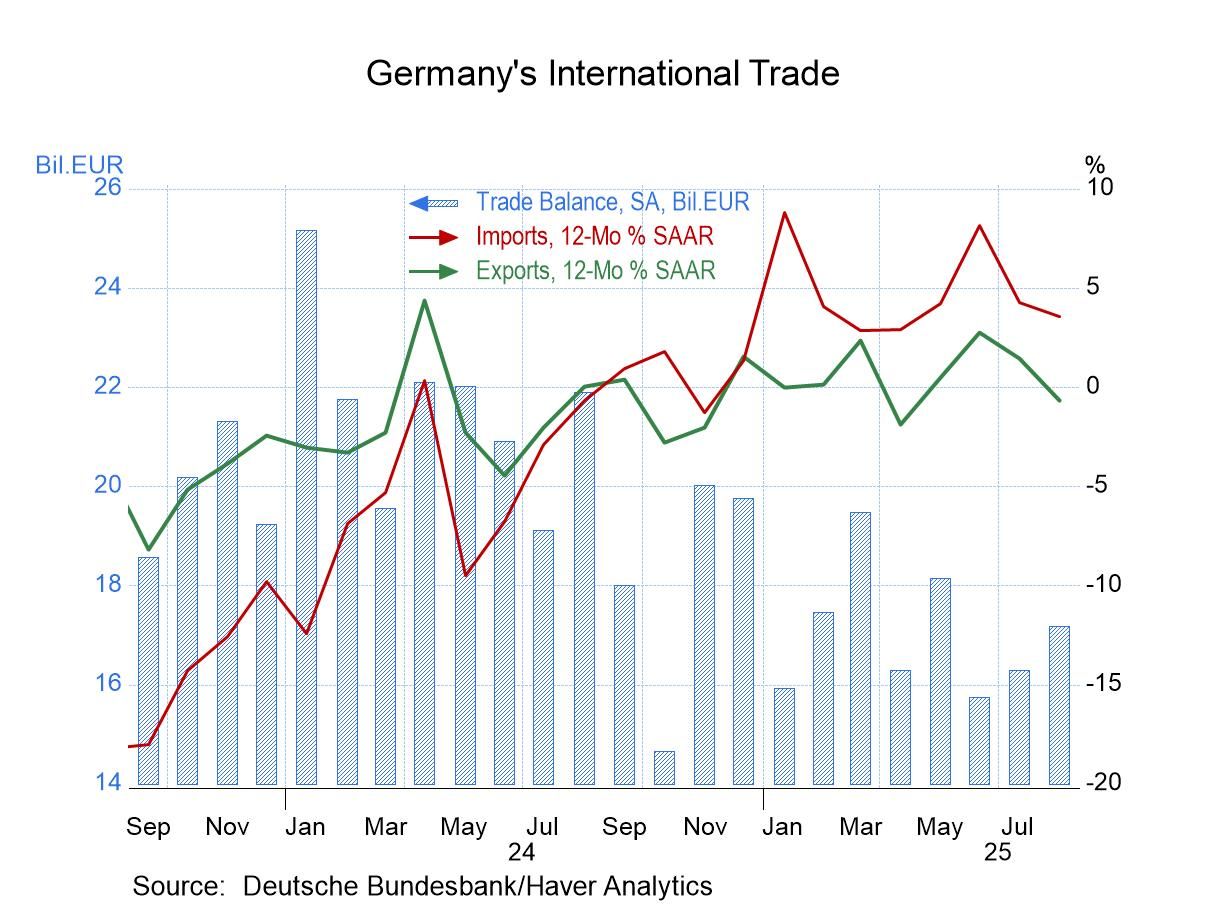 Global| Feb 10 2004
Global| Feb 10 2004OECD Leaders Firm
by:Tom Moeller
|in:Economy in Brief
Summary
The Index of Leading Indicators for the Major Seven OECD Countries finished 2003 with another firm gain. The 0.7% (5.9% y/y) rise in December was the ninth consecutive month of strength. Six-month growth in the leading index rose to [...]
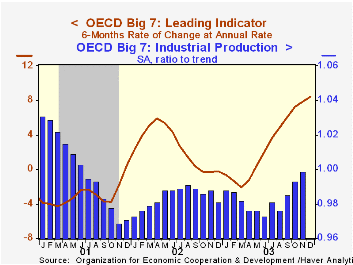
The Index of Leading Indicators for the Major Seven OECD Countries finished 2003 with another firm gain. The 0.7% (5.9% y/y) rise in December was the ninth consecutive month of strength.
Six-month growth in the leading index rose to 8.4%, the strongest since 1987.
Gains amongst the member country leading indexes continued broad and strong. The leading index for the European Union rose 0.3% (4.9% y/y) and that pulled the six-month growth rate to 6.6%, the strongest since 1999.
In France, the leading index added 0.8% (4.7% y/y) with the six-month growth rate building momentum to 8.5%. Leaders in Germany jumped 0.9% (7.4% y/y). Low inventories, firmer orders and an improved business climate raised the six-month growth rate to 10.7%.
Leaders in Italy plunged 1.4% (+2.0% y/y). Six-month growth in the leaders at 1.1% was the weakest since June and reflected weaker consumer confidence, weaker order books and a deteriorated future tendency of production.
Leaders in Japan rose 0.1% but the prior month was revised up to a like gain from the 0.2% decline reported initially (1.9% y/y). Six-month growth has been stable above 3% since the Summer.
In Canada the leading index surged 1.3% (4.7% y/y) following a November gain that was revised sharply upward. Six-month growth of 8.4% was the strongest since mid-2003. In the U.K. the leaders were strong, up 0.8%, following three months of modest gain (+2.3% y/y). Leading indicators in the United States jumped another 1.2% (8.4% y/y).
Visit the OECD's website at this website.
| OECD Main Economic Indicators | Dec | Nov | Y/Y | 2003 | 2002 | 2001 |
|---|---|---|---|---|---|---|
| OECD Major Seven - Leading Index (Trend Restored) | 121.5 | 120.6 | 5.9% | 1.6% | 2.4% | -3.0% |
| European Union | 121.9 | 121.5 | 4.9% | 2.2% | 3.2% | -1.7% |
| Japan | 102.3 | 102.1 | 3.0% | 1.3% | -0.5% | -4.4% |
| United States | 133.3 | 131.7 | 8.4% | 1.9% | 2.8% | -3.5% |
by Tom Moeller February 10, 2004
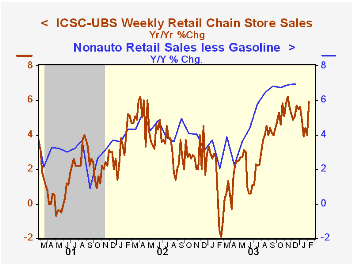
Chain store sales surged 1.8% last week and recovered all of the prior week's 1.3% drop, according to the ICSC-UBS survey.
Sales began February 1.0% above the average level in January.
During the last ten years there has been a 59% correlation between the year-to-year percent change in the ICSC-UBS measure of chain store sales and the change in non-auto retail sales less gasoline.
The ICSC-UBS retail chain-store sales index is constructed using the same-store sales reported by 78 stores of seven retailers: Dayton Hudson, Federated, Kmart, May, J.C. Penney, Sears and Wal-Mart.
| ICSC-UBS (SA, 1977=100) | 02/07/04 | 01/31/04 | Y/Y | 2003 | 2002 | 2001 |
|---|---|---|---|---|---|---|
| Total Weekly Retail Chain Store Sales | 432.9 | 425.3 | 5.9% | 2.9% | 3.6% | 2.1% |
by Tom Moeller February 10, 2004
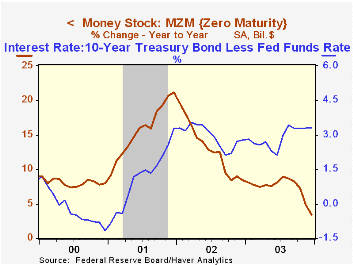
Growth in the US money supply recently has slowed but the steep slope of the yield curve indicates that monetary policy remains expansive.
The Federal Reserve Bank of San Francisco recently published a four part primer on US Monetary Policy. These are found at the Bank's website.
"Making Monetary Policy More Transparent" from the Federal Reserve Bank of St. Louis can be found here.
Tom Moeller
AuthorMore in Author Profile »Prior to joining Haver Analytics in 2000, Mr. Moeller worked as the Economist at Chancellor Capital Management from 1985 to 1999. There, he developed comprehensive economic forecasts and interpreted economic data for equity and fixed income portfolio managers. Also at Chancellor, Mr. Moeller worked as an equity analyst and was responsible for researching and rating companies in the economically sensitive automobile and housing industries for investment in Chancellor’s equity portfolio. Prior to joining Chancellor, Mr. Moeller was an Economist at Citibank from 1979 to 1984. He also analyzed pricing behavior in the metals industry for the Council on Wage and Price Stability in Washington, D.C. In 1999, Mr. Moeller received the award for most accurate forecast from the Forecasters' Club of New York. From 1990 to 1992 he was President of the New York Association for Business Economists. Mr. Moeller earned an M.B.A. in Finance from Fordham University, where he graduated in 1987. He holds a Bachelor of Arts in Economics from George Washington University.



